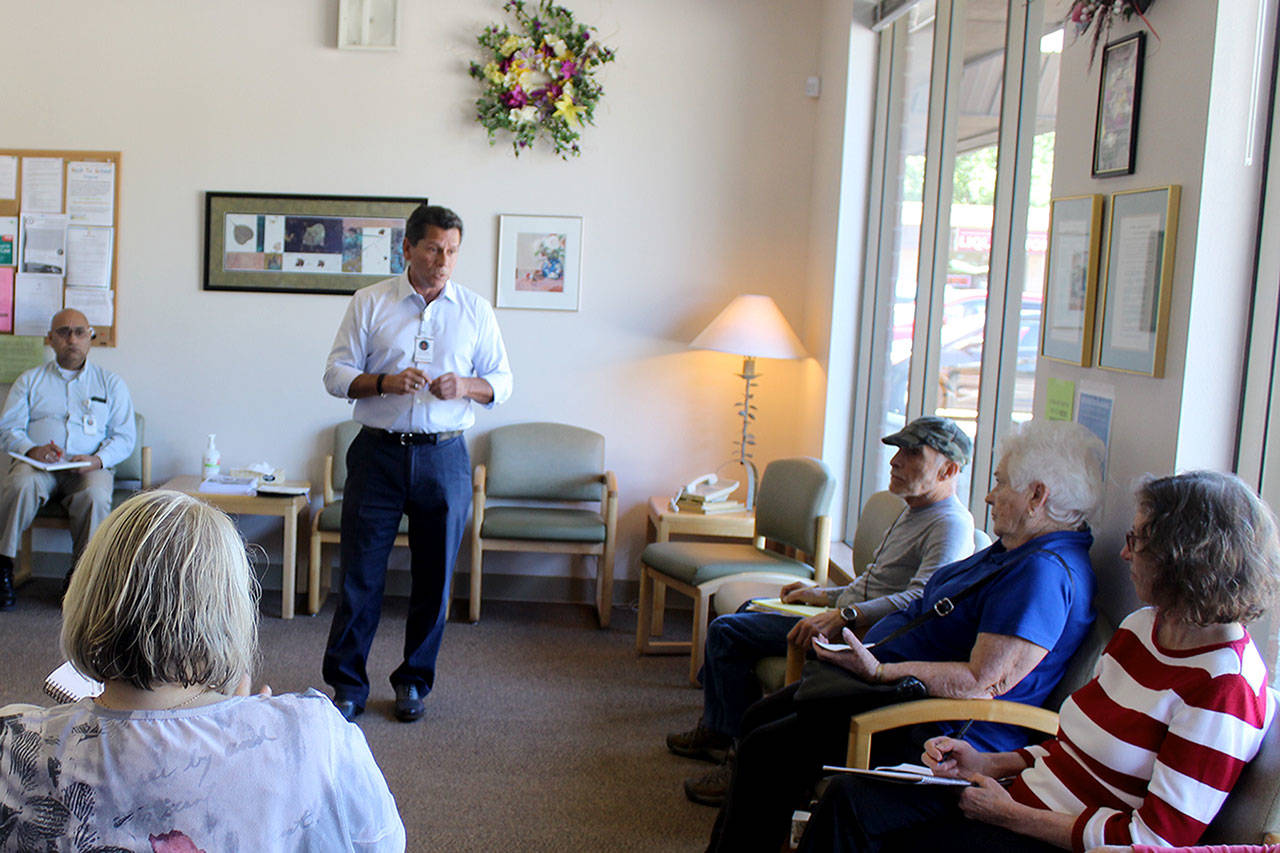WhidbeyHealth CEO Ron Telles apologized and took the blame for not notifying Clinton Clinic patients of plans to end primary care at that location.
“I won’t make excuses,” he told about 20 people attending a Tuesday meeting at the clinic. “We want to take care of this community.”
The new CEO admitted the handling of the clinic’s change in services was poorly communicated. Patients are being given the option to switch their care to the Freeland Clinic, located about seven miles north.
In a press release sent out May 30, WhidbeyHealth announced the Clinton clinic was closing to primary care services and would reopen as a laboratory and diagnostic imaging facility July 1.
Many at the meeting said WhidbeyHealth never directly notified them. Some longtime patients indicated they would seek health care in Everett or elsewhere because of the “callous disregard” shown them.
“It’s somewhere between incompetence and negligence,” Steve Erikson said of finding out the clinic was closed from a June 4 Record article.
“I had an urgent problem,” he said. “We were not notified by the providers that they were leaving.”
Diane Ludington, patient registrar, said the staff did inform people coming in for appointments of the need to switch care to the Freeland location.
WhidbeyHealth plans to convert the Clinton facility into a diagnostic center starting July 1. It then plans to add the staff necessary to open it as an urgent-care / walk-in center, possibly this fall.
Having an urgent-care facility could lessen the load of patients seen at WhidbeyHealth Medical Center’s emergency room who are suffering minor problems, such as colds or sprains, Telles explained.
Lab services, x-rays and other diagnostic images, including mammography, will be available Monday-Friday 7:30 a.m. to 4 p.m starting July 1 at Clinton. No lab services will be available at Freeland’s WhidbeyHealth Primary Care after July 1.
Constant turnover of staff at Clinton’s clinic location was also a top concern at the hour-long gathering.
“They’ve given me whiplash for years,” Bea Rawls said, “Why do the providers always leave?”
Harvi Bedi, manager of primary care services, responded that finding good physicians and providers is one of the health system’s greatest challenges.
“Island life is not for everybody,” he said.
The Clinton clinic had about 6,000 patient visits last year. It’s generally been staffed by advanced registered nurse practitioners who were described at the meeting as “wonderful,” “best around,” and “sorely missed.”
Hannah Carlson offered her insight about working at the clinic as a nurse practitioner from 2012-2019. She left, she said, because Saturdays were added to her schedule, and she wanted to spend weekends with her family.
“This building is very small. It has four exam rooms,” Carlson said. “The demand is high, but the space is small. It puts practitioners under stress.”
Telles explained that changing the focus of the Clinton clinic had been discussed by the administration for years. WhidbeyHealth owns the building, he said, adding that “it needs some love. The appearance from the outside has always bothered me.”



